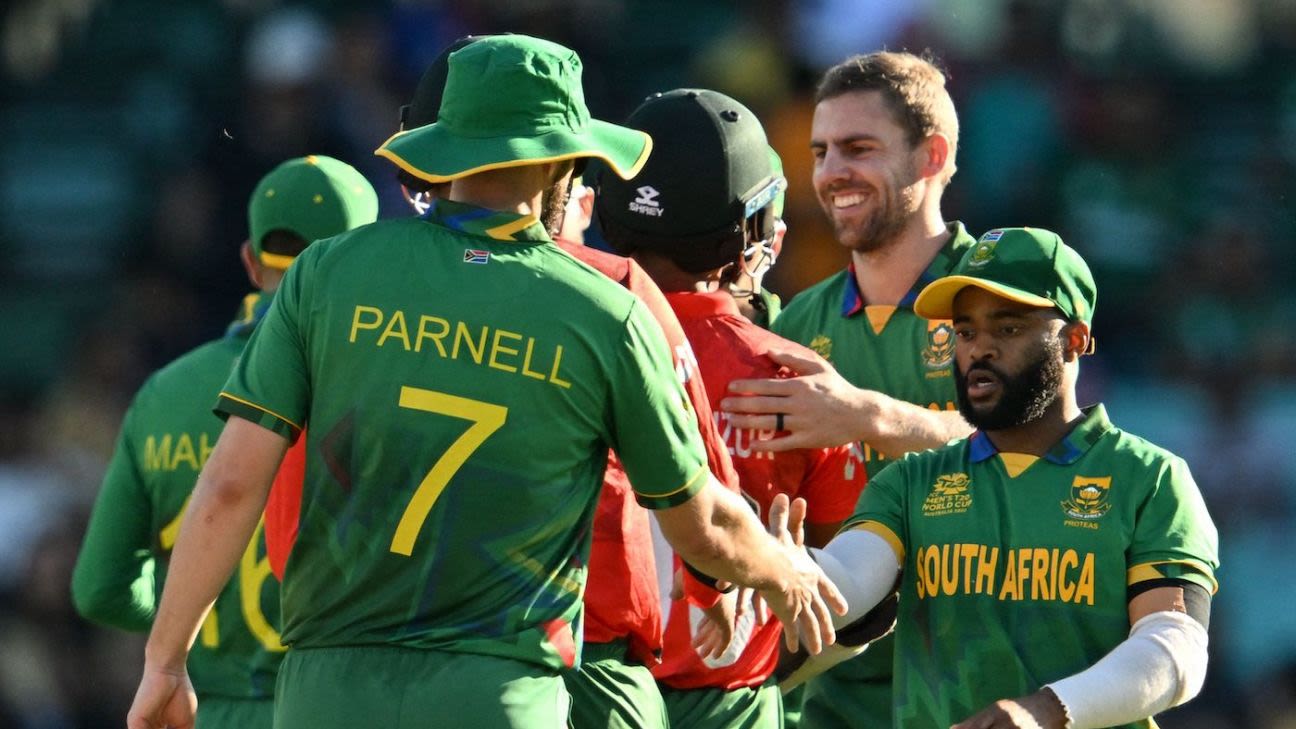“The emotions are not as raw, but in terms of the disappointment and the disbelief, that’s still there,” Bavuma said. “It’s going to take me a couple of days.”
The ups and downs of South Africa’s last three years – since former CEO Thabang Moroe made the decision to overhaul the coaching system and install a team director who was then swiftly replaced with a coach, Boucher – have been witnessed first-hand by Nkwe. He was the interim team director on a disastrous tour to India in 2019, and then served for almost two years under Boucher before resigning, citing concerns with the team culture. His return in an overseeing role saw him replace Graeme Smith as DOC, which was followed by Boucher’s resignation. If that sounds chaotic, imagine what it must have been like being involved in it, as Nkwe confirmed. “As a system, we have gone through a lot,” he said. “We went through a bit of a turmoil.”
Asked whether he thought the sum total of the off-field events (the example above is only a small sample) affected the team, Nkwe said he wouldn’t use it as an excuse. “One thing I have been proud of this team over the last couple of years is that they’ve been able to go on the park and compete and try and win games,” he said. “They’ve been able to close off all the noise and whatever is happening off the field. Somehow we found a way to get to a point where we remain competitive. I believe the team has come through that very well.”
Still, he admitted the World Cup exit was “disappointing”, and that the culpability had to fall somewhere, perhaps with CSA. “We will always take full accountability,” Nkwe said. “When the results are poor, there will be fingers pointed at the organisation in terms of what has happened in the past and whether there was enough support. Whether the team loses or wins, we are always going to be supporting the team and asking ourselves questions about what more we can do.”
And the last of those is where Nkwe’s focus now lies. He did not want to get into whether he agreed with the decision to leave out in-form players like Reeza Hendricks or persist with out-of-form players like Kagiso Rabada because “I don’t get involved in selection”, but said there will be a “clear strategy going forward.” With an ICC event every year for the next eight years, South Africa’s emphasis is on “How do we prepare better for World Cups coming?”
Given that they’ve never won a World Cup, it’s fair to assume no one really has the answers, but Nkwe has made clear that he’s going to try finding them. “There is a culture we are driving internally to make sure we put cricket in a good healthy space,” he said. “There’s a lot of work behind the scenes and what we are all working towards is getting our national teams to reach No.1 and win World Cups. We are now at the point where we can make a difference and that will be our focus. There’s so many opportunities as an organisation to change it all. Hopefully next year we can be in a different position celebrating our team winning a World Cup.”
